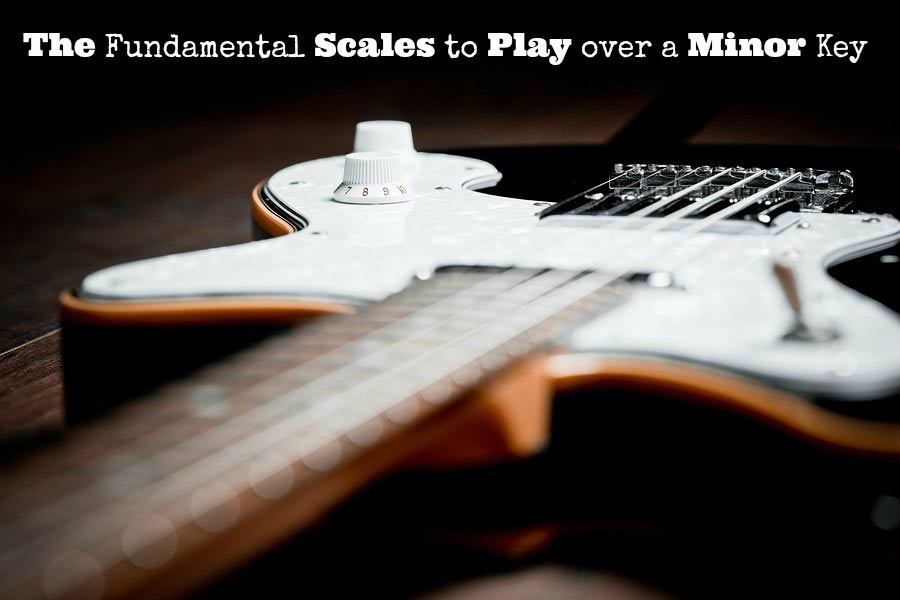 According to scientific american it seems that over the last few decades popular music has changed it’s course from major to minor keys.
According to scientific american it seems that over the last few decades popular music has changed it’s course from major to minor keys.
A minor key means the song is in a key or mode based on a minor scale. The song usually has a more darker, melancholic or sad mood.
To be able to improvise over a minor key you need a minor scale. There are a lot different types of minor scales. Today we focus on the most important scales played over a minor key.
The two most used and fundamental scales are the natural minor scale and the minor pentatonic scale.
CHORDS
We can use the chords built from the natural minor scale to play these scales over.
The chord formula for the natural minor scale:
minor – diminished – major – minor – minor – major – major
Often notated as Roman numerals: i – ii – III – iv – v – VI – VII
For example we’re going to play chords in the key of “A” minor.
Apply the notes of the A natural minor scale: A – B – C – D – E – F – G to the chord formula.
You get the following chords: Am – Bdim – C – Dm – Em – F – G
You can use these chords to build any progression. A popular and common chord progression is Am G F G (i – VII – VI – VII) Continue Reading
 I used to be amazed by guitar players who’s fingers ran smoothly up and down across the fretboard while improvising.
I used to be amazed by guitar players who’s fingers ran smoothly up and down across the fretboard while improvising. A guitar lick is a phrase (a short musical idea) made up of a series of notes that you can use and incorporate into your soloing and improvisation. You can also see it as a small part or fragment of an entire solo. Good licks can add magic, excitement and drama to your solos.
A guitar lick is a phrase (a short musical idea) made up of a series of notes that you can use and incorporate into your soloing and improvisation. You can also see it as a small part or fragment of an entire solo. Good licks can add magic, excitement and drama to your solos.